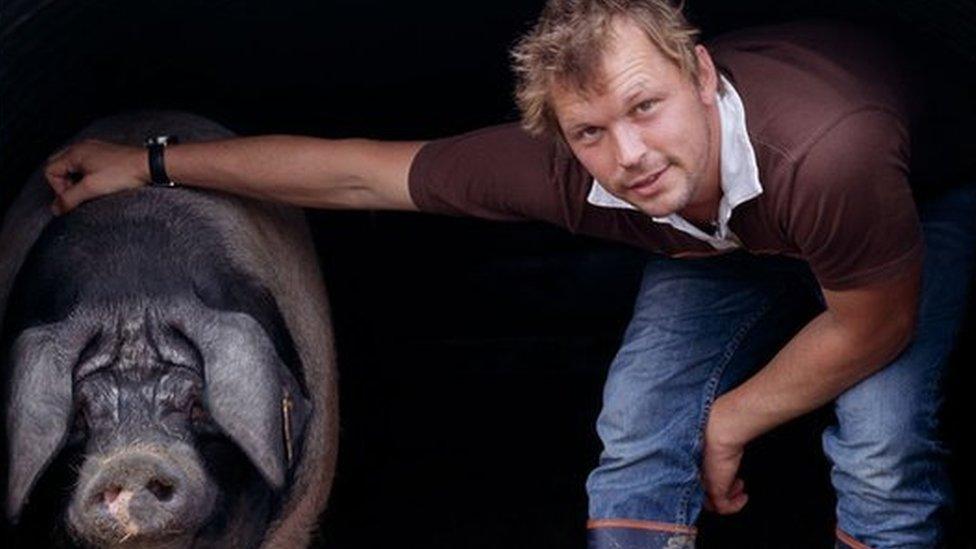Jimmy's Farm: Tree falls on to capybara enclosure
- Published
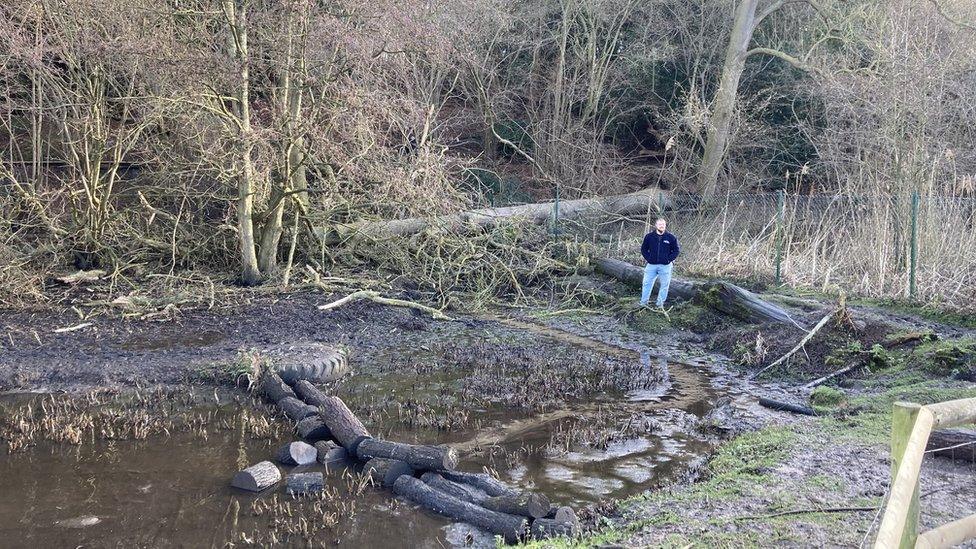
The tree fell towards the capybara enclosure and landed on the green, chain-link fence, squashing one section of it. The tree behind the member of staff was later felled
A falling tree startled animals and visitors as it landed in an enclosure at TV presenter Jimmy Doherty's wildlife park.
An ash landed across the fence of the capybara pen at Jimmy's Farm & Wildlife Park near Ipswich on Thursday.
The park said none of the large rodents were injured and the ash fell due to a combination of a fungus that weakens the tree and waterlogged soil.
It added that it was collating data on the health of all its woodland trees.
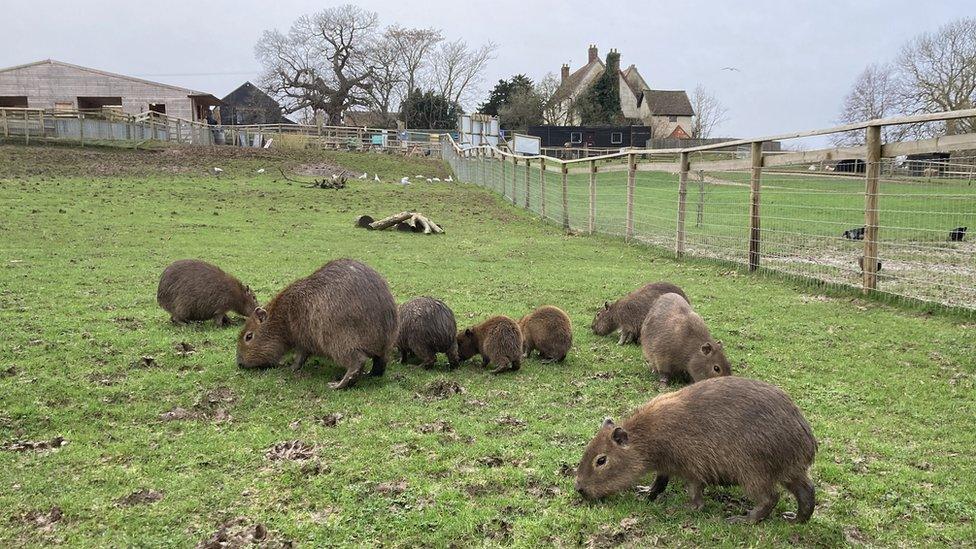
The capybara enclosure is next to the Jimmy's Farm woodland area
The Jimmy's Farm website describes the capybara, external as the world's largest rodent.
Native to South America, its scientific name Hydrochoerus hydrochaeris means "water pig" and the animals have a pond in their enclosure, which sits at the bottom of a valley between the woods and the rest of the park.
Earlier that day, the park had posted on X (formerly Twitter), external to say "we welcomed five new baby capybaras on Christmas Day".
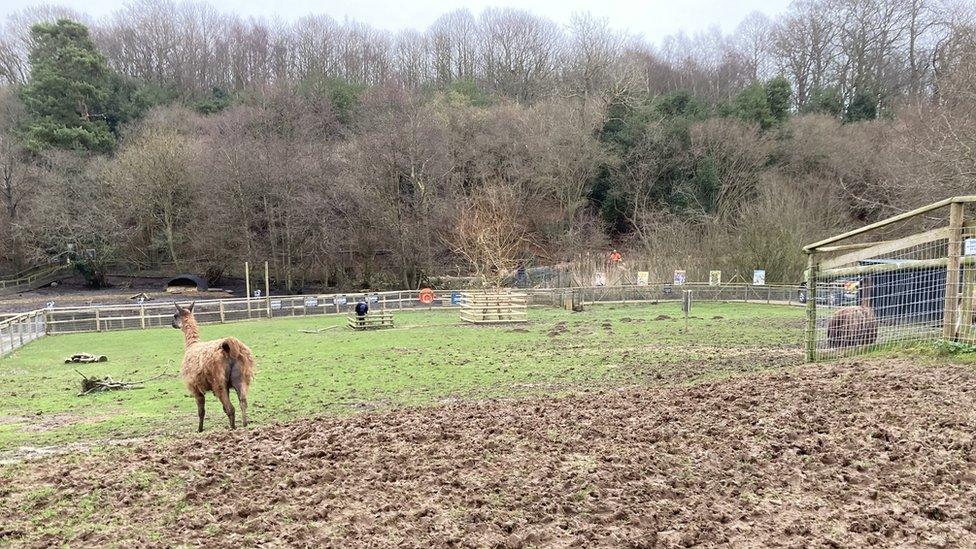
The capybara enclosure is divided into two areas - a pond area next to the woods and a grassy area on the other side of the fenced visitor footpath which they share with guanaco - a mammal related to alpaca, llama and camel
Staff at the park, at Wherstead, used chainsaws to remove the trunk and repair the fence.
The tree showed signs of shaggy bracket fungus, the park said.
A spokeswoman for Jimmy's Farm said: "This fungus weakens the tree from the inside and, with the grounds being so saturated from the recent rainfall, caused the root system to be further destabilised.
"This is an area of woodland which we leave as natural and wild as possible, for the native wildlife to thrive. The fungus shows no visible signs in the winter.
"No capybara were hurt... just a bit surprised. Our staff were at the incident site within seconds, to ensure the safety of the area, animals and people."
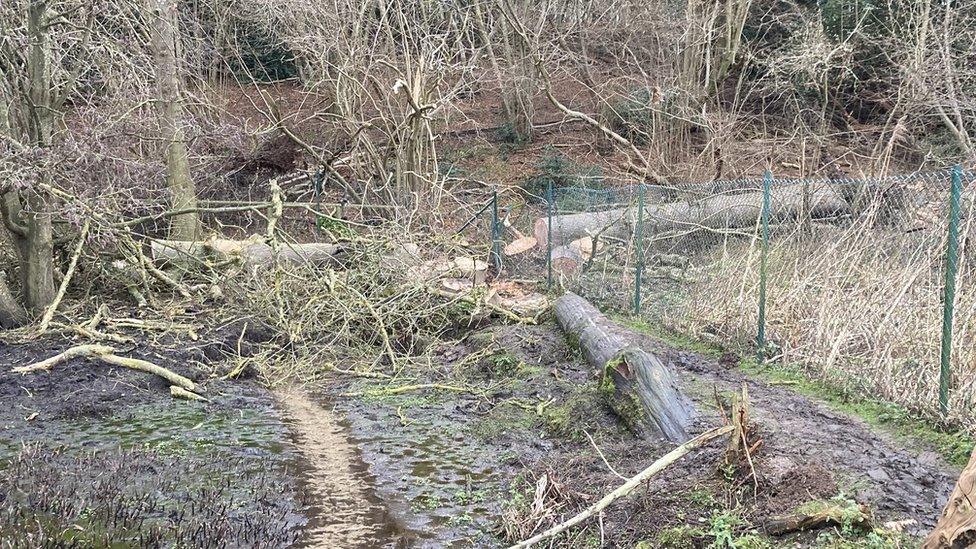
The fallen tree was later cut up using chainsaws
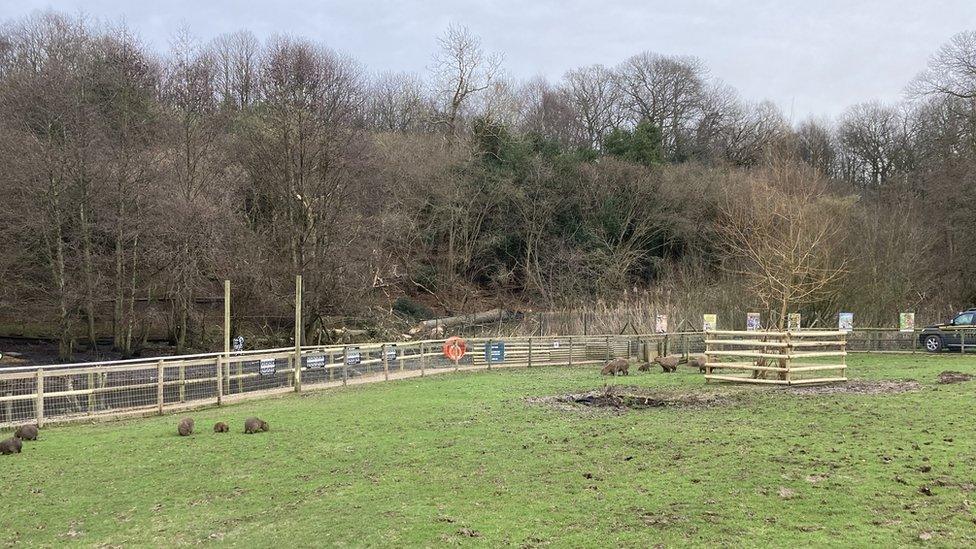
As a precaution, staff felled an adjacent ash tree that also showed signs of the fungus
The farm said it was "in the process of writing a full woodland management plan with guidance from Forestry England and will collate all our tree health data... to inform how we manage the woodland in the future for wildlife, our animals and visitors".
Visitors can walk up into the woods above the capybara pen and build dens on the higher ground.

Follow East of England news on Facebook, external, Instagram, external and X, external. Got a story? Email eastofenglandnews@bbc.co.uk, external or WhatsApp 0800 169 1830
- Published4 December 2023
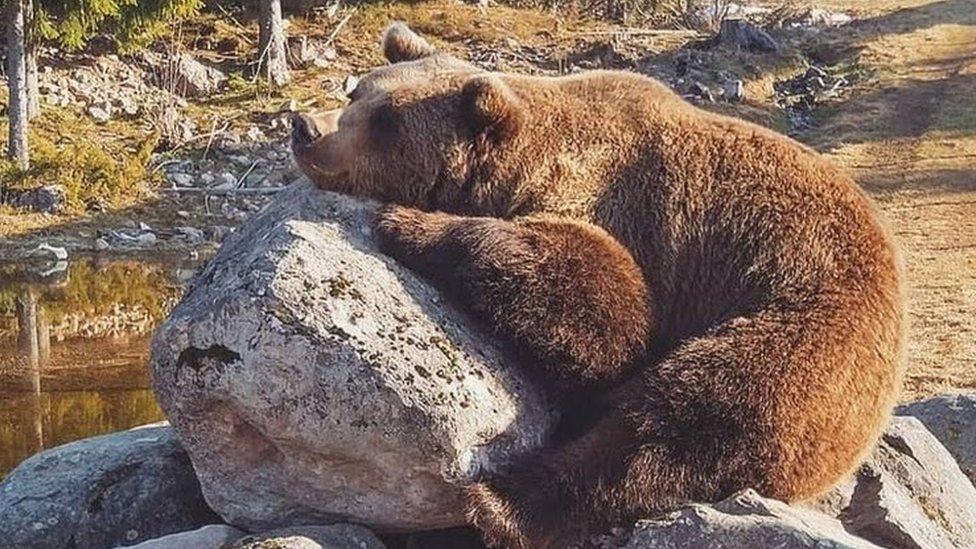
- Published24 October 2023
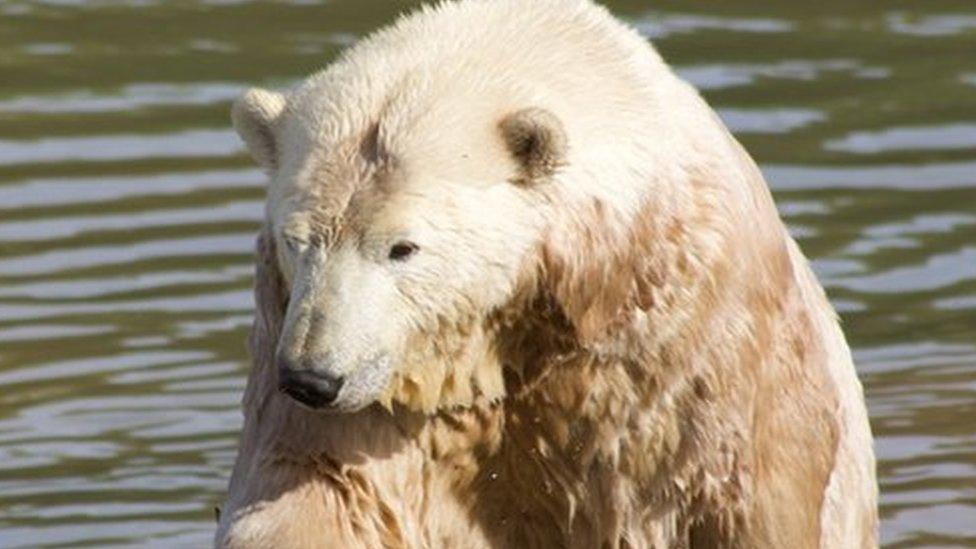
- Published9 October 2023
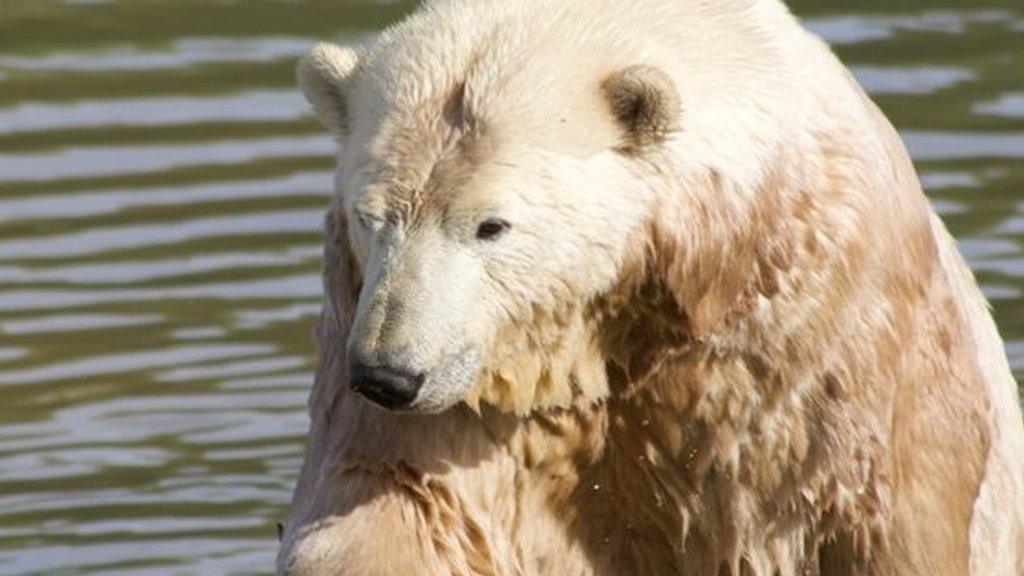
- Published14 June 2023
